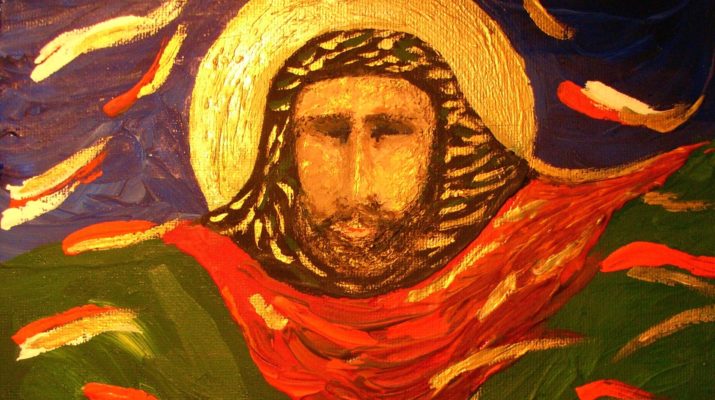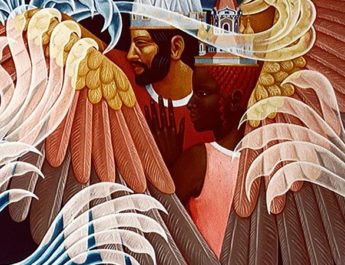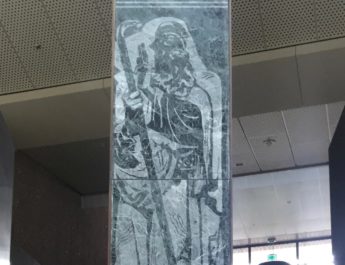Mark 10:27
NL 202
27 JesusA lookedB at them and said,C
A “Jesus” = Iesous. From Hebrew Yehoshua (Joshua, the Lord is salvation); {from YHVH (proper name of the God of Israel; the self-existent and eternal one); {from havah (to become) or from hayah (to come to pass, become, be)} + yasha (to deliver, defend, help, preserve, rescue; properly, to be open, wide or free, which implies being safe. So, in a causative sense, this is to free someone)}. This is Jesus or Joshua in Greek – the Lord saves or the Lord is salvation.
B “looked” = emblepo. 12x in NT. From en (in, on, at, by, with) + blepo (to see, used primarily in the physical sense; figuratively, seeing, which includes attention and so to watchfulness, being observant, perceiving, beware, and acting on the visual information). This is to look at, gaze, consider, stare, see clearly, look with particular interest.
C “said” = lego. This is to speak, say, name, call, command. It is generally to convey verbally.
“For mortalsD it is impossible,E but not for God;F for God all thingsG are possible.”H
D “mortals” = anthropos. Probably from aner (man, male, husband) + ops (eye, face); {from optanomai (to appear, be seen); perhaps from horao (become, seem, appear)}. This is human, humankind. Used for all genders.
E “impossible” = adunatos. 10x in NT. From a (not, without) + dunatos (mighty or powerful; ability of persons, possibility of things; what can be given the power or ability that the subject exhibits); {from dunamai (to be able, have power or ability)}. This is powerless, unable, impotent, or impossible. It is weak in a literal or figurative sense.
F “God” = Theos. From Proto-Indo-European origins, meaning do, put, place. This is God or a god in general.
G “all things” = pas. This is all or every.
H “possible” = dunatos. Related to “impossible” in v27. See note E above.
Image credit: “Icon #2 Jesus the Good Shepherd” by Clive, 2010.




